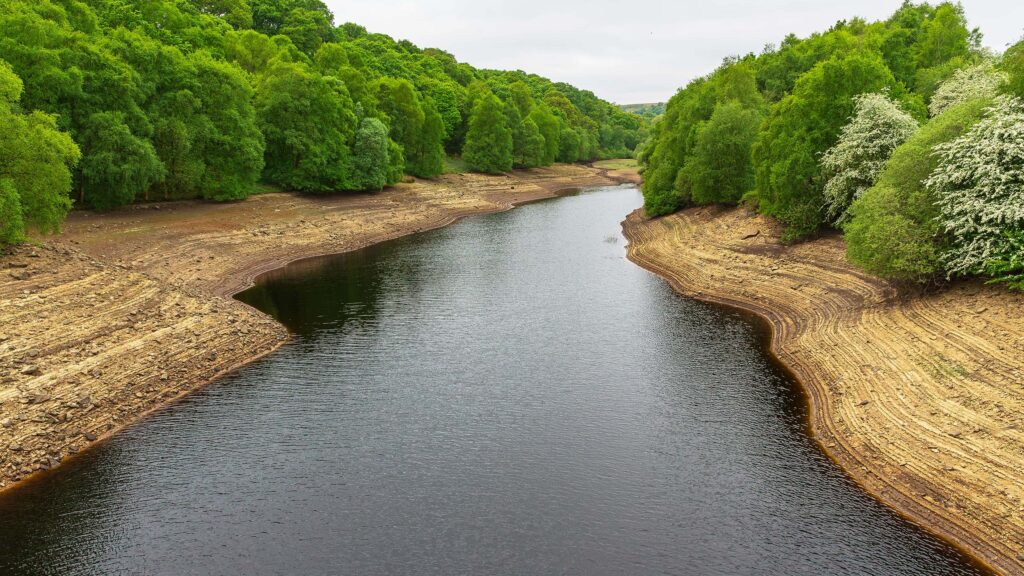Drought hits North West as farmers warn of growing crisis
 The Leighton reservoir at Nidderdale, North Yorks, earlier this month © Adobe Stock
The Leighton reservoir at Nidderdale, North Yorks, earlier this month © Adobe Stock The Environment Agency has officially declared a drought in North West England, citing some of the lowest spring rainfall levels since records began.
Reservoirs and rivers across the region are severely depleted, with water levels in key reservoirs such as Haweswater and Thirlmere sitting at less than half capacity.
Farmers in the region say the dry spell is hitting their production – and the worst may be yet to come.
See also: New reservoir push brings hope for drought-hit farmers
Kenneth Tyson, who farms beef and sheep in Cliviger near Burnley, Lancashire, said conditions were becoming unsustainable.
“We’ve had barely any rain this spring. It’s been great for lambing, but the grass just isn’t growing like it should,” he said.
“Right now, I’m still grazing fields that should already be growing crops. The grass is so bare and we’ve got nothing for fodder. The pastures are as barren as a tarmac road.”
Arable farmers are also feeling the strain.
Olly Harrison, who farms in Prescot near Liverpool, described the irony of his situation: “Despite my farm being called Water Farm Lane, we have none.”
Reflecting on the weather extremes, he said: “Just last year, we had too much rain and cloud to get good crop yields.
“This year, it’s the opposite – not enough moisture. They say never work with children or animals – but Mother Nature’s the trickiest beast of all.”
Driest spring in 150 years
The drought declaration comes after the driest February to April period for the North West region since 1871.
United Utilities reports reservoir levels as low as 46%, compared with more than 90% this time last year.
While recent rain has provided some relief, Environment Agency officials warn it is not enough to reverse the trend, especially with hotter weather forecast.
The UK government revealed this week that it is accelerating construction of two large reservoirs, in Lincolnshire and East Anglia – the first in more than 30 years – as part of broader efforts to secure long-term water resilience in the face of more frequent droughts.
Meanwhile, in Scotland conditions remain mixed. While recent rainfall has helped western and south-western areas recover to “early warning” or “alert” status, much of the east remains at “moderate scarcity”, according to the Scottish Environment Protection Agency.
Long-term rainfall deficits mean rivers and aquifers are still under pressure.
The agency continues to advise farmers and businesses to reduce non-essential water use, warning that restrictions may become necessary without sustained rainfall in the coming weeks.
